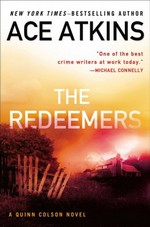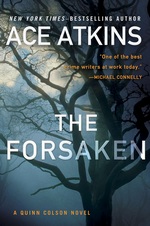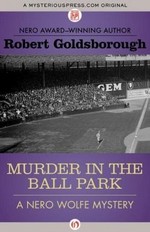While in the shower this morning, it hit me that I left out something like a paragraph and a half of this — and I had to make the choice: fix this before it posted, or get to work and fix it later. Because my wife tends to appreciate things like paychecks, a roof over our heads and food for the kids, I chose the latter. If you read this already, try it again.
This one just launched this past weekend — get it while it’s hot and fresh so he can do more!
—
by David Ahern
Series: Madam Tulip, #1Kindle Edition, 309 pg.
Malin Press, 2016
Read: April 27 – 28, 2016

‘Hi,’ said Marlene, pausing for the briefest moment before striding up the steps and through the entrance, trailing the rest behind. Derry might have been justifiably offended at the offhand greeting but recognised the signs of a woman bursting for a pee. That a supermodel needed to pee was a gratifying thought, even endearing, though Derry recognised it was odd to like somebody just because they had a bladder. . .
Derry sighed. Her father was about to lose two hundred euro on a race, and although he wouldn’t dream of blaming her, she felt responsible. And now she was condemned to spend the afternoon in the company of a supermodel. Next to Marlene, Derry felt like a hobbit—a hobbit overweight and round even by the famously relaxed standards of hobbits. She looked down at her shoes (charity shop) then at Marlene’s (Jimmy Choos) and her soul shrank a little inside her.
Derry’s an out-of-work actor — “fully qualified for unemployment in three different dialects” — trying to make a go of it in her father’s hometown of Dublin, and is on her last legs. Her mother is on the verge forcing her to return to the States and get a real job. And by “force,” I mean, “stop paying her bills so she has no choice.” But Derry’s got a little something extra working for her, she’s the only daughter of a seventh son of a seventh son — and therefore, has a bit of a gift. She uses it to read Tarot and other cards for her friends as a laugh, and that’s really about it. But suddenly, she really needs money, and the mother of invention just had another kid.
With the help of her friend, Bella, and a couple of costume and makeup artists at a local theater, they create an alter ego for Derry, Madam Tulip — celebrity fortune-teller. Her first gig is at a charity event that Marlene sets her up with — Marlene is blown away by Derry’s gift, and desperately needs a friend. The event is the perfecting launching pad for her new role, it’s attended by actors, musicians, models, has-beens, wanna-bes, people with too much money, etc. For example, there’s Mojo.
Mojo was an outlandishly gorgeous rapper from London, winner of numerous industry awards. He was also the star of TV ads for masculine cosmetics and a revolutionary vacuum cleaner also created especially for men, so presumably designed to withstand long periods of storage under the stairs.
(yeah, it was an awkward transition, but I got to use that quotation)
Not to get into details, but the event goes well — Tulip sees many people, some of whom take her card; Derry and Marlene get closer; money is raised for . . . something, I don’t know. Well, sure, nothing’s perfect — Derry runs into an old flame, Bella runs into trouble and someone died. If Derry’s sight is right, that’s just the beginning of the trouble. Before long, Derry and at least two of her friends are in danger on several fronts. Oh, yeah, and her mother is coming to town.
Ahren’s put a lot of thought into these characters, it’s clear — they’re well-drawn, well-utilized, and prime for return in a sequel. Beyond Derry and Marlene, we have the aforementioned Bella — an outspoken fellow struggling-actress, the ex-boyfriend (will let you learn about him on your own) and Bruce. Bruce is an actor, and so much more — starting with ex-SEAL, which means he can be used for the dangerous stuff. Thankfully, he’s more human than most characters in this position, he’s not a gay version of Joe Pike or Ranger from the Stephanie Plum novels (nor is he Spike from the Sunny Randall series). He’s a guy who’s done some things, seen some things, and is working to move on into his new life. We also have Derry’s folks — her mother (just as charming as you’d expect from the ultimatum) and her artist father. Derry’s father, Jacko, is the stand-out character for me — he reminded me of Moxie Mooney’s father from Fletch’s Moxie (been years since I’ve read that, so maybe he shouldn’t have). Jacko’s full of life, an inveterate gambler, a painter with an ego to match his talent, womanizer, not-as-devoted-as-he-thinks father — and, of course, the seventh son of a seventh son. I can easily see him becoming a drag on the series (see Grandma Mazur in the Plum novels), but as long as Ahren uses him right, he’s probably going to be my favorite.
Here’s the best part of the book for me, it’s also the part that keeps this in the “Mystery” category and not “Urban Fantasy,” Derry’s gift really has very little to do with the outcome of things. She knows there’s trouble afoot (murder tends to indicate that), she has friends in peril, and she does something about it (calling the police is out, for pretty good reasons). It’s Derry’s wits and some help from her friends that allows her to help bring justice to the situation. Naturally, most of the help on the friend side comes from the ex-SEAL, because when you’re in danger, and you have an ex-SEAL friend, that’s who you look to. Derry risks life and limb to help out her friends without any supernatural, extrasensory, etc. assistance.
This isn’t a comedy, but it’s comedic. Ahern writes with a light, but confident, touch. It’s well-paced, and it kept me very engaged. The mystery is fairly simple, but this doesn’t set out to to be a head-scratcher. It’s a silly adventure — and a well-executed one at that. Think Psych where Shawn actually has abilities, and doesn’t need James Roday’s affable charm to keep him from being the most annoying character in television history. Ahern’s clearly and carefully set the stage for several more books with these characters, and I’m eager to see what he does next.
Disclaimer: I received this book from the author in exchange for an honest review, and I thank him for bringing it to my attention.
—–



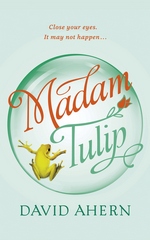


 Rex Stout’s
Rex Stout’s 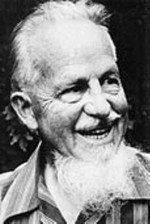
 On Oct 23 in Chillicothe, Ohio, Archie Goodwin entered this world–no doubt with a smile for the pretty nurses–and American detective literature was never the same.
On Oct 23 in Chillicothe, Ohio, Archie Goodwin entered this world–no doubt with a smile for the pretty nurses–and American detective literature was never the same.